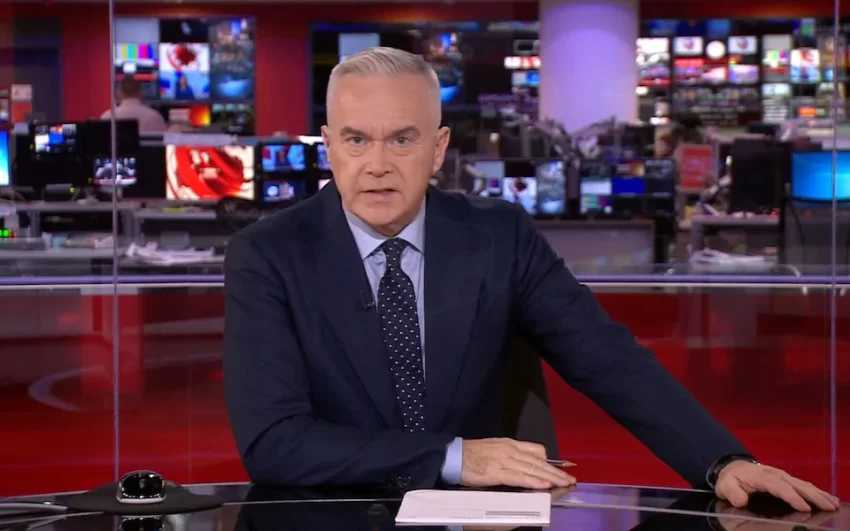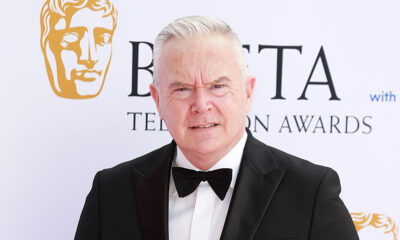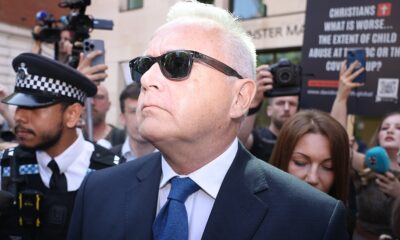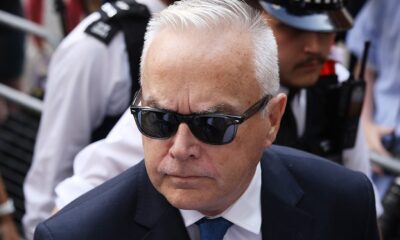Business
Huw Edwards becomes third highest BBC earner despite suspension

Huw Edwards emerged as the BBC’s highest-paid journalist last year, earning £480,000 despite serving a nine-month ban. The annual report shows Edwards received a £40,000 pay rise, making him the company’s third highest earner.
Edwards was suspended in July 2023 over allegations he paid a young man for explicit images and only resigned in April for medical reasons. During this period he was tasked with presenting 160 days’ worth of BBC One news bulletins, including news and election specials, along with other programmes.
Gary Lineker remains the BBC’s top earner with an unchanged salary of £1.35 million. Radio 2’s Zoe Ball follows, with her salary reduced slightly to £950,000. Nick Robinson saw the biggest increase, moving into the top 10 highest earners thanks to his BBC podcast work. His salary rose from £280,000 to £350,000 after the launch of The Today Podcast. The combined salary for the Today program presenters now stands at £1.56m, up from £1.49m last year.
With the exception of a few presenters, they received a pay increase last year. The BBC has been mandated to publish salaries above £178,000 from license fees. New entries include former weather presenter and radio DJ Owain Wyn Evans, who now earns £200,000. Vernon Kay, who replaces Ken Bruce as Radio 2 mid-morning DJ, joins the list with a salary of £325,000, while Gary Davies joins with a salary of £205,000.
Edwards is behind Radio 1 Breakfast Show presenter Greg James (£420,000) and Fiona Bruce (£410,000), who hosts Question Time and the BBC news bulletins. Bruce’s entire salary, including Antiques Roadshow, is significantly higher.
Tim Davie, the director general, defended continuing Edwards’ pay. “We always try to use public money wisely and we don’t want to waste a single pound,” Davie said. “From the start, we have tried to act proportionately and fairly and to deal with this in the right way. I think that’s what we did.” He emphasized that Edwards’ contract was agreed before the scandal broke.
Edwards also gave after-dinner speeches and organized awards ceremonies like ours Awards for Entrepreneurial Champions both in 2022 and 2023.
The report also shows that half a million people stopped paying their license fees last year, causing an £80 million drop in income. Despite the drop in the number of fee payers from 24.4 million to 23.9 million, BBC’s chief operating officer Leigh Tavaziva insisted the license fee “continues to provide excellent value for money.”
Davie highlighted hit shows such as Gladiators, Blue Lights and Once Upon A Time In Northern Ireland as examples of the company’s ‘sustained creative excellence’. Recognizing that challenging times lie ahead, he announced that 500 posts would be cut by March 2026 as part of a “streamlining effort”.
The report shows that the BBC has failed to meet its performance targets for reaching young audiences, with only 71 percent of 16-34 year olds using BBC services on a weekly basis, falling short of the target of 75 percent. For young people under the age of 16 this was 69 percent, and for young people aged 16 and older it was 85 percent.
Additionally, the report revealed an increase in the number of formal cases of sexual harassment and bullying, from 34 to 50. The average time to close a case increased from 69 days to 101 days.













